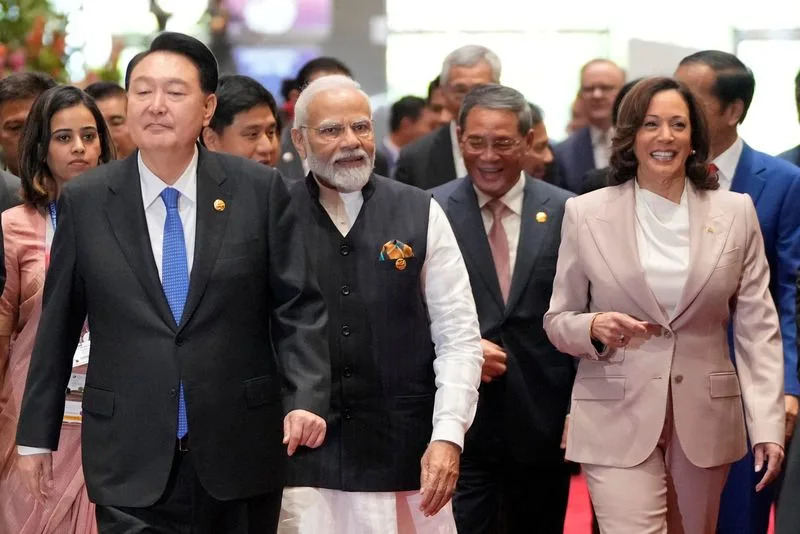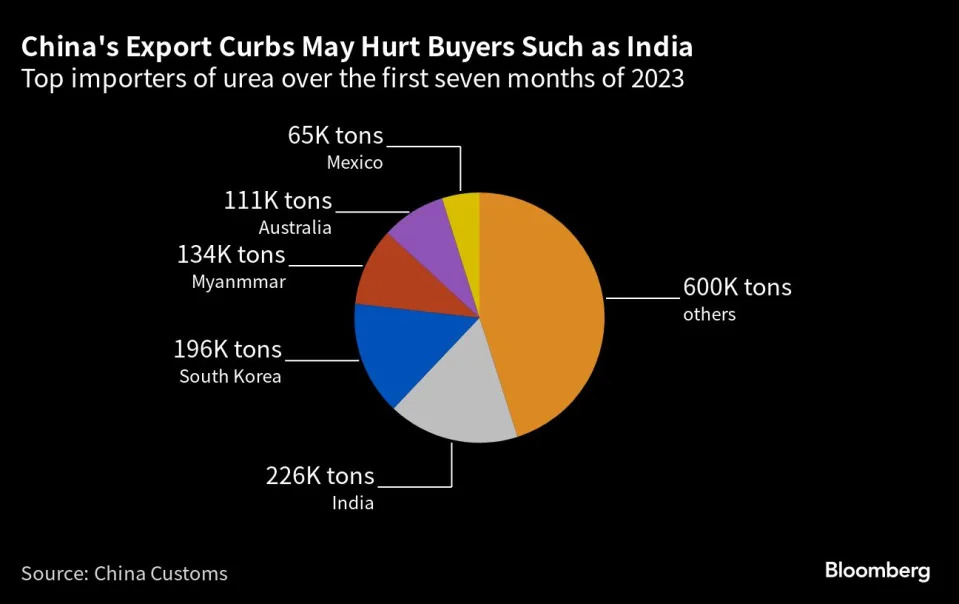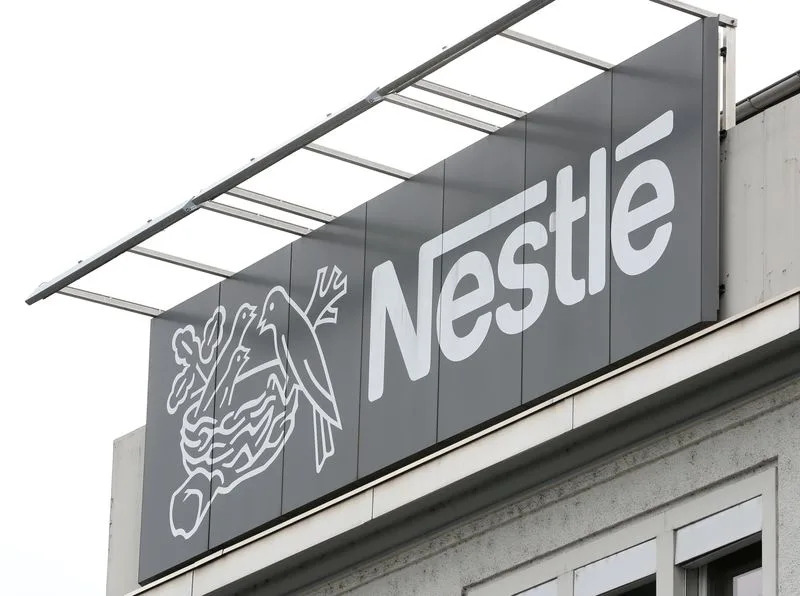By Kate Lamb and Ananda Teresia
JAKARTA (Reuters) -Indonesian President Joko Widodo called on world leaders on Thursday to step back from confrontation as they met at a Southeast Asian-hosted security and trade summit against a backdrop of big-power rivalries.
U.S. Vice President Kamala Harris, Chinese Premier Li Qiang, and Russian Foreign Minister Sergei Lavrov joined the summit in the Indonesian capital led by the Association of Southeast Asian Nations (ASEAN), along with leaders of other partner countries.
Tensions have accompanied the talks on issues from trade and technology, to China's increasing assertiveness in the South China Sea, the Myanmar junta's refusal to cooperate with ASEAN on a peace plan, the war in Ukraine, and suspicion that North Korea plans to supply weapons to Russia.
Indonesia and other Southeast Asian countries have warned this week of "destructive" rivalries between major powers, a reference to U.S.-China tensions that they say puts them in danger.
"We all have a responsibility to not create new conflict, new tension, new war and at the same time we also have a responsibility to reduce tensions," Widodo, as chair of the 10-member ASEAN bloc this year, said at the beginning of the East Asia Summit.
Cooperation and multilateralism risked being replaced by "the rule of the strong".
"The world will be destroyed if conflicts and tensions in one place are taken to another place," he said in closing the summit.
On Wednesday, China's Li warned against starting a "new Cold War" and warned countries against taking sides in any conflict.
Harris, attending in place of President Joe Biden, reiterated her country's "enduring commitment" to Southeast Asia and the Indo-Pacific.
A White House official said earlier the U.S. shared interests with ASEAN in "upholding the rules-based international order, including in the South China Sea, in the face of China's unlawful maritime claims and provocative actions".
Harris underscored U.S. opposition to "unilateral changes to the status quo in the South China Sea and East China Sea" in meetings with Japanese Prime Minister Fumio Kishida and Philippine President Ferdinand Marcos, a White House spokesperson said. China and Japan both claim a tiny group of islands in the East China Sea.
South Korean President Yoon Suk Yeol, another staunch U.S. ally, said any attempts to change the status quo by force in the South China Sea could not be tolerated.
China's Li and Japan's Kishida met briefly on the sidelines of the summit on Wednesday and discussed Japan's release into the sea of treated radioactive water from the Fukushima nuclear plant.
An infuriated China has banned on all aquatic imports from Japan in response.
MYANMAR CRISIS
ASEAN leaders are also grappling with a protracted conflict in Myanmar, a member of their grouping beset by violence since the military ousted a government led by Aung San Suu Kyi in 2021.
During Thursday's East Asia Forum, concerns were raised about Suu Kyi's "treatment, status and health and continued, unacceptable detention", according to U.S. state department official Daniel Kritenbrink.
The 78-year-old Nobel laureate, who is serving 27 years in detention, is ailing and the junta has denied requests for an external physician to see her.
ASEAN has tried unsuccessfully to push for peace in Myanmar leading to questions about the influence of their politically diverse group.
Earlier in the week, ASEAN leaders called on the country's armed forces "in particular" to end hostilities. Myanmar said the bloc should stick to its principle of not interfering in each other's affairs.
U.N. Secretary-General António Guterres said Myanmar was facing a "worsening political, humanitarian, and human rights" situation, and repeated calls for the junta to release all political prisoners.
(Additional reporting by Stanley Widianto, Gayatri Suroyo, Stefanno Sulaiman; Writing by Kanupriya Kapoor, A. Ananthalakshmi; Editing by Robert Birsel and John Stonestreet)






